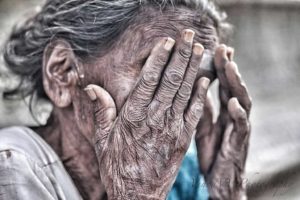Civilians ‘Terrorized’ in Pakistan Drone War
NYU law professor Sarah Knuckey, one of the authors of a new report on the social effects of America’s drone war in Pakistan, talks about the “broad mental health impacts” on people who live in fear of deadly attacks from the sky 24 hours a day.
New York University law professor Sarah Knuckey, one of the authors of a new report on the social effects of America’s drone war in Pakistan, talks about the “broad mental health impacts” on people who live in fear of deadly attacks from the sky 24 hours a day.
The U.S. drone campaign “terrorize[s] men, women, and children, giving rise to anxiety and psychological trauma among civilian communities,” says the report, co-written by James Cavallaro, director of the International Human Rights and Conflict Resolution Clinic at Stanford University. Researchers conducted interviews with roughly 70 individuals who have had direct and devastating encounters with America’s unmanned planes.
“Because the drones are very precise, in a certain sense, you never know whether it might hit your vehicle or your home or your child’s school,” Knuckey told “Democracy Now!” “Even the medical doctors and journalists felt, even though they knew they were safer than most civilians, that they felt unable to go about their daily lives without a constant sense of fear.
“Because of that fear, people change their daily practices in really important ways. Medical doctors will not go to a drone strike zone within six hours, because they fear being themselves struck in a secondary strike. Journalists and medical doctors, when they go to the market, when they drive their car, they feel this fear. Some parents admitted — and they were embarrassed to admit this, but they admitted that they wouldn’t send their children to school at certain times, because they were worried about strikes. The jurga, which is an extremely important community mechanism for resolving disputes—there was a significant strike on a jurga. Those people said they had the jurga in a public place because they felt safe, they knew they were civilian. But they were hit, and so now people are afraid to meet in public spaces to resolve disputes.”
— Posted by Alexander Reed Kelly.
Democracy Now!
Your support matters…Independent journalism is under threat and overshadowed by heavily funded mainstream media.
You can help level the playing field. Become a member.
Your tax-deductible contribution keeps us digging beneath the headlines to give you thought-provoking, investigative reporting and analysis that unearths what's really happening- without compromise.
Give today to support our courageous, independent journalists.






You need to be a supporter to comment.
There are currently no responses to this article.
Be the first to respond.